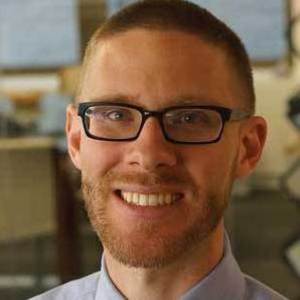Regional Visions for Wood Heat




November 22, 2015
BY Ben Bell-Walker
If you’ve ever traveled to the Pacific Northwest, one of the many impressions you’ll take away is the sheer abundance of forests and woody biomass. Some states, however, such as California, Idaho, Oregon, Washington, and Alaska face very different problems in managing their forests than the Northeast or the Midwest. The challenges are often related to climate change, most recently the occurrence of massive, unprecedented wildfires, closely followed by invasive species like the pine beetle. These common threats have created a need for collaboration of stakeholders in the West.
BTEC, as the representative for biomass thermal on the national level and coordinating body for regional networks, has a vital interest in helping to develop solutions to these issues, and therefore was glad to attend the third-annual meeting of the Western Statewide Wood Energy Teams in The Dalles, Oregon, in late October. There, attendees witnessed the creation of truly regional vision for the future of woody biomass in the western U.S., when a group of about 60 state forestry, U.S. Forest Service, university, and private industry stakeholders gathered to discuss possibilities for collaboration and common challenges.
An important benefit of the Statewide Wood Energy Team network is its ability to improve individual state’s biomass energy efforts, as the lessons learned by each team help them to consider innovative new policies and practices in support of the economy and environment and to assist in the sustainable growth of the biomass economy.
Marcus Kauffman, biomass resource specialist at the Oregon Department of Forestry stated that “the Wood to Energy 2015 event showcased the many benefits that come from using wood for energy. Participants soaked up stories about energy savings for schools that switch to modern wood heating, liquid transportation fuels that lower your carbon footprint, and biochar products that increase plant yields and save water. In addition to wood-to-energy successes, attendees were intrigued and inspired by the latest developments in cross-laminated timber that could usher in new era of wooden multistory buildings. Up to speed on the latest developments and buoyed by a strong camaraderie, participants left the event ready to put what they learned to work back home.
In his keynote address, Charlie Niebling, partner at Innovative Natural Resource Solutions and chair of BTEC Policy Committee, stated that each region should strive to create and maintain a vibrant and sustainable biomass heating economy. He emphasized that despite geographic differences, the industry and its stakeholders greatly benefit by meeting regularly to share their experiences.
Wood to Energy 2015 identified a variety of challenges, including the need for funding for prefeasibility studies, boiler commissioning, and maintaining the operation of current projects, particularly in remote rural communities. Karen Petersen from the University of Alaska discussed a number of innovative projects on Prince of Wales Island, Alaska. These projects featured rural island communities, some having schools of fewer than 20 students, and displayed how using biomass as a heating resource can help communities reduce their heating costs. They may be small, but these schools can be expensive to operate, particularly in relationship their tax bases. These schools were able to drastically cut heating costs and provide needed economic development through the installation of efficient cordwood hearing systems that also heat school greenhouses. The conversion to thermal biomass provided affordable year-round produce, jobs both on and off the campus, and educational resources for cash-strapped schools.
Overall, the conference highlighted the power that a truly regional approach can have for our industry. This conference demonstrated that despite having matured unevenly across the U.S., the biomass heating industry can be a major contributor to the health and well-being of local economies and the environment. It is fair to say that no participant could have walked away from The Dalles gathering anything less than wiser from the experience, which, in turn, is likely to improve both their communities and the industry as a whole.
Author: Ben Bell-Walker
BTEC Technical Program Manager
202-596-3974
ben.bell-walker@biomassthermal.org
Advertisement
Advertisement
Advertisement
Advertisement
Upcoming Events





